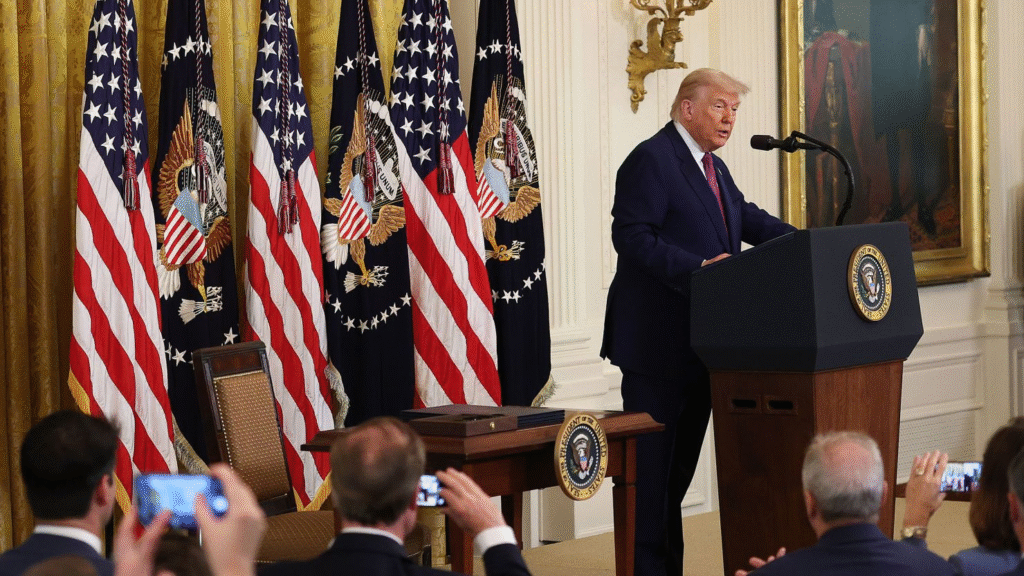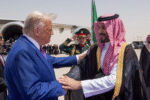vesud, US President Donald Trump’s announcement to postpone his decision on potential military strikes against Iran for two weeks has stirred significant concern and speculation within Israeli leadership circles.
Top Israeli officials had previously advocated for American military support, emphasizing that US involvement could not only hasten the conflict’s resolution but also help Israel achieve a long-standing objective: eliminating the perceived nuclear threat from Iran. The fear of a nuclear-capable Iran, particularly one with ballistic missile capabilities, remains at the core of Israel’s national security doctrine.
Former Israeli Defense Minister Yoav Gallant, who played a key role in developing Israel’s initial strategy before his dismissal by Prime Minister Benjamin Netanyahu in November, stated that the US has a responsibility to ensure the region moves towards stability, free from the shadow of a nuclear-armed Iran.
Israel’s Cautious Messaging Reflects Political Sensitivity
With Trump delaying a final decision, Israeli leaders are now treading carefully in their public statements. They are avoiding rhetoric that might pressure the US administration, particularly given Trump’s historical reluctance to deepen military entanglements in the Middle East. Nonetheless, Israeli officials continue to highlight the strategic value of potential US intervention.
According to multiple Israeli officials interviewed most under anonymity due to the sensitive nature of US-Israel relations there is still active internal debate about the implications of Trump’s delay.
One significant military consideration is Iran’s Fordow enrichment site, located deep within the mountains south of Tehran. Israeli intelligence believes that a successful and permanent strike on the facility may be beyond Israel’s capabilities alone, and would require powerful American bunker-buster munitions carried by strategic bombers.
“There’s a consensus that Israel will eventually go for Fordow,” said Yaki Dayan, former Israeli consul general in Los Angeles, “but the results could be less decisive and more dangerous without American support.”
Political Calculations Amid MAGA Divide
The Israeli government is closely monitoring US domestic politics, especially the divide within Trump’s MAGA base. The internal Republican split between isolationists and hawkish interventionists adds another layer of unpredictability to Trump’s potential actions.
Officials have noted that figures close to Netanyahu like Ron Dermer have been engaging with conservative US media to influence public and political discourse without directly lobbying for American military action.
Publicly, Netanyahu has maintained strong praise for Trump, highlighting ongoing dialogue and coordination. However, the Prime Minister is also aware of Trump’s unpredictable tendencies and unilateral decision-making style, often relying on a small group of trusted advisers.
Uncertainties Cloud Washington-Tehran Messaging
Despite diplomatic overtures, including recent meetings between Iranian Foreign Minister Abbas Araghchi and EU leaders in Switzerland, the White House has remained vague on direct communication channels with Tehran. Meanwhile, Israel continues to carry out aerial strikes targeting Iranian infrastructure.
Some Israeli officials view Trump’s two-week window as a tactical move to confuse Iran what one described as a “smoke and mirrors” strategy implying the decision to act may have already been made.
Others are more skeptical, pointing to inconsistency in Trump’s statements over the past few weeks. Just days ago, the President declared near-total US air control over Iran, only to follow up with a cautious delay.
Risks of Prolonged Operation
The second week of Israel’s operation marks a turning point. With the initial element of surprise fading and operational complexity increasing, officials are warning that any misstep could have cascading consequences not just militarily, but diplomatically, too.
“There’s a rising risk that something could go wrong the longer this continues,” one senior official remarked.
Alon Pinkas, former Israeli consul general in New York, echoed these concerns, noting that uncertainty around Trump’s final stance is deeply unsettling for Israeli leadership.
“Every passing day without clarity increases anxiety here,” Pinkas said. “And perhaps, Netanyahu miscalculated just how much leverage he truly had.”
As Trump weighs his next move, Israel is caught in a tense holding pattern. The delay has forced its leaders to confront the limits of unilateral action, the necessity of alliance diplomacy, and the unpredictability of a volatile US political landscape. The coming days could define not only the future of Israeli-Iranian conflict but also reshape the regional security architecture for years to come.

